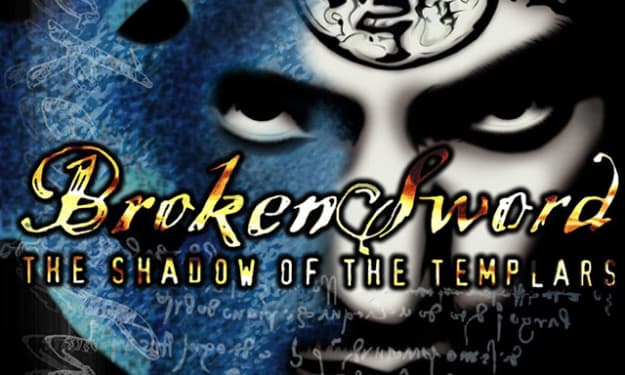FIREWATCH REVIEW
Dear Esther, I must admit that I enjoy a well-designed Walking Simulator. The Stanley Parable is my personal favorite and continues to be an entertaining and smart game

Dear Esther, I must admit that I enjoy a well-designed Walking Simulator. The Stanley Parable is my personal favorite and continues to be an entertaining and smart game. Too many games that fall under this category today rely too heavily on the same tricks Dear Esther used. Primarily relying on pretty graphics and a vague, "you-decide-what-it-all-means" story to try and carry themselves to critical acclaim. These things can be overly pretentious, and I find them not very interesting.
Firewatch by Campo Santo is a walking simulator. However, it feels far more worthy of the praise it received, even though it is not up to the level of high praise. It is actually close to being a complete recommendation, but it just fell at some critical hurdles.
As with all these games, the emphasis is on the story. I will try my best to not spoil it, but it is possible.
Firewatch, while not completely breaking the trend of walking simulators is a beautiful game. The game has a cartoony look with bright, vivid colours and sharp contrasts. It also features amazing lighting and semi-realistic design. While it is true that most games like this are merely sightseeing tours, this one is still enjoyable to play.
In the middle of summer, the game takes place in a national park in the United States. Henry is a RUGGED, RUDE man who runs from his difficult life and unsolvable issues to become one the many forest fire watchers in this remote park. There must be a name for this... A watch for fire...
The game takes place in bright sunlight and deep sunrises of a hilly, lush woodland park. It still retains that "right on top of bursting into fires" look and feeling that one would associate with parks such as Yellowstone and Yosemite. It's perfect.
Exploration is fun because you get a map and a compasse and are told to solve it yourself. Although it's easy, the process of looking at a map and then determining where to go based upon landmarks and your location is quite enjoyable.
However, the background of the game is more dark. You will learn about Henry's marriage to his love, who has a neurodegenerative disorder. He literally flees for the hills, away from reality, rather than dealing with his wife's inability to recall him or their lives together.
The best part of the game is the first. Henry does the usual chores and tasks one would expect from his position. He is constantly under the supervision of Delilah who speaks to him via the walkie-talkie.
Delilah can be contacted about almost anything you find. The best part of the game is the conversation between Henry and Delilah. As they gradually let down their guards and get to know one another, they become friends and share their pasts.
They banter, ranging from lighthearted banter about Henry reading every leaf that he finds to more serious topics about their real-life problems, shifts from light-hearted banter. It is amazing and compelling to watch Henry and Delilah interact. At the right times, it can be very sad, worrying, or hilarious. Their chemistry and rapport are very natural. Although I was sometimes frustrated by the dialogue, the choices that you were presented with did not match Henry's words. There were times when two sets of dialogue would be going at the same time. This was due to two triggers. The time limit for each discussion would make it even more difficult. You could lose certain conversations or worse, have two completely different discussions start to blend together because you may have gone too fast or in the wrong direction.
Despite these frustrations, however, it was amazing how real and authentic the interaction between Henry and Delilah was. It didn't feel written. Instead, it flowed effortlessly and felt totally natural. While a fair amount of credit can be attributed to both the voice actors and the characters themselves, it is clear that the dialogue between them was written with great skill.
Although dialogue choices don't make any significant changes to the game, it is still interesting to think about the different avenues of conversation that could be opened up. There may be differences in how Delilah interacts with Henry and how she acts towards Henry. You can also choose how much you want to reveal about your spouse's past.
Another aspect that the game excelled at was the atmosphere and tone changes. This credit goes to the music score and the lighting, though to a lesser extent.
You will encounter strange and unexpected occurrences as the game progresses. These occurrences make it obvious that, despite the idyllic setting, nothing is what it seems. Henry is not alone in his struggles to cope with his life.
These things can cause a sudden shift in tone that can be very dramatic. You can be carefree and mellow one minute, and then suddenly become tense and full with intrigue the next. The abrupt changes could have been disruptive elsewhere, but here they seemed to be perfectly executed. Tension suddenly spiked and wiped out the relaxed feelings from moments before, leaving the seat on the edge.
The plot is where the story really begins to unravel.
It is clear that the game's best moments are when it is focused on Henry and Delilah, and not when it is trying make a point about how to get rid of your problems. Contrary to what one might think, the mystery that underlies the game eventually begins to distract from the experience.
It almost feels condescending, as if we couldn't have Henry's story about his past and relationships without some sort of murder mystery. Gamers just don't have that kind of patience.
Worse, it was very unsatisfying at the end. It did wrap up the story but it felt completely out of place. It felt like the end was quickly rushed after the careful and slow buildup.
It was like a writer had a great premise and began a story, but didn't know how to complete it.AnythingThey could also end the game.
It was frustrating to find that there were many instances where things didn't make sense in the narrative of Campo Santo. There were some oddities that made it seem like they had never been answered, and there were some confusing choices made by characters that made absolutely no sense at the end.
Most of these questions and concerns are addressed by the developers in interviews. However, I think it is a major problem with the game that you need to search for these answers in interviews.
It could be deliberate. Maybe you don't have all the answers. Just like real life, where things are messy and messy. It can be frustrating to feel like the story you are hearing is incomplete, or worse, nonsensical.
It is a great shame that the ending was the worst part of this game. It makes it feel like it spoils the beginning hours of the game, which were actually very interesting and excellent. The story was unsatisfying because it shifted to the "mystery" and the ending of that mystery left me disappointed.
This is why I am making such a big deal about it. Firewatch shares many similarities with other walking simulators, in that there are no "gameplay" mechanics at any level. There is nothing more Henry can do in the game than talking to Delilah, about rocks and shrubberies, and walking to your next goal. It is not worth your time if the story can't carry all the other elements.
Another problem with Firewatch? It doesn't seem to live up to the promises it makes at first. A few other things are discussed with Delilah, but they feel more like gameplay mechanics. These things seem important and have weight in the story. Both trash removal and the use of a camera to take pictures are discussed early on, but they don't play any part in the final outcome. You are encouraged to take photos as evidence in a few parts of the story, and the camera has a limited number. This is done with absolutely no payoff, and it ends up feeling completely pointless. It feels, like the ending, that there was actually a mechanic or outcome to this. But then they had to rush it so it was scrapped.
One instance is very different than the rest. It allows you to influence dialogue by throwing a radio in a lake and breaking it. This seems to indicate a game where you will occasionally be able to do something that will have an impact on other aspects of the game and story. It may also suggest a setup for a game where there will be some actions you can perform that will affect other aspects of the game and story, things and decisions that may not seem obvious at first. The idea of throwing the radio into a lake is one example of such a scenario. It doesn't happen again, and the action ends up not paying off. This leaves one feeling like the game could be more but didn't.
It feels like you are forced to make a deal with Firewatch. It was a great experience, and I would have given this a recommendation without hesitation. It's difficult to decide if it's worth the effort, considering how much it could spoil for you.





Comments
There are no comments for this story
Be the first to respond and start the conversation.